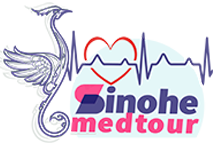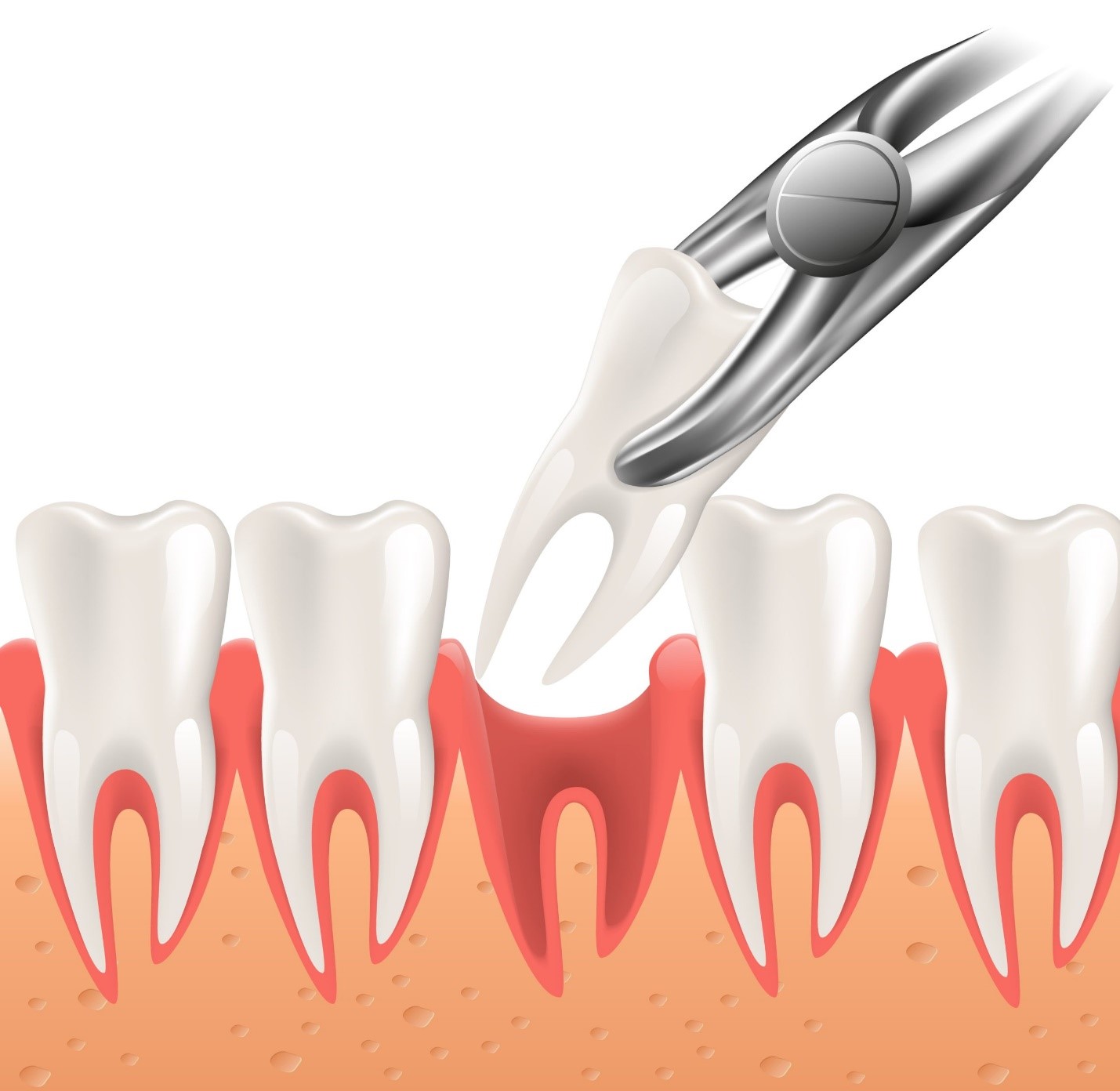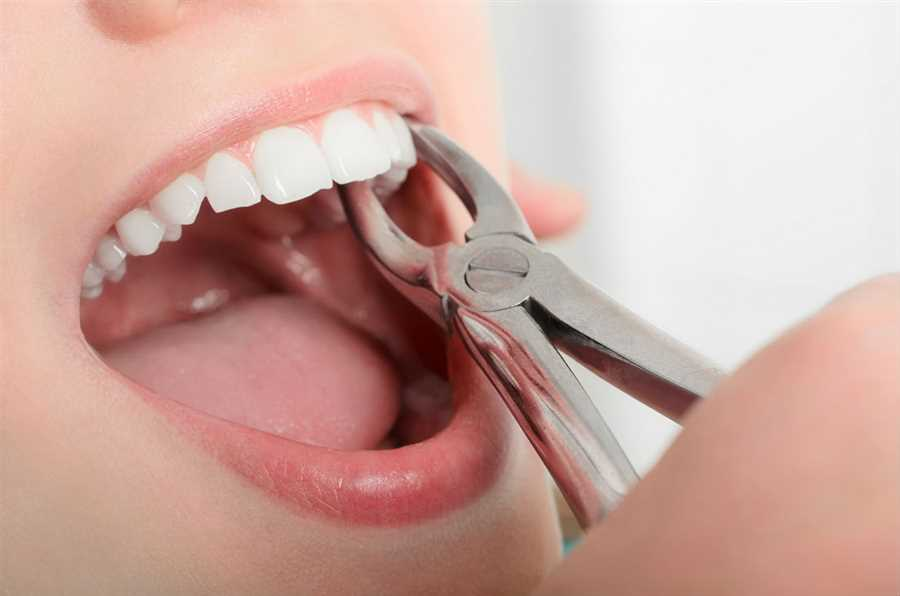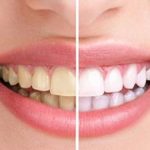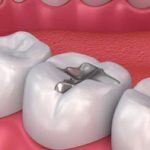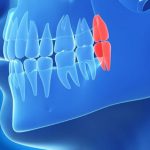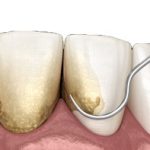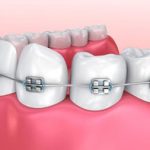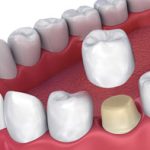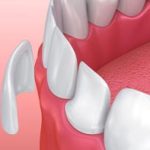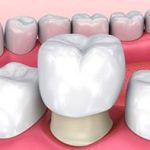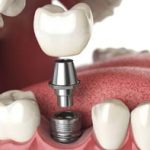What is a tooth extraction?
A tooth extraction is a dental procedure during which your tooth is completely removed from its socket. Sometimes, people refer to this as “pulling” a tooth.
When is tooth extraction recommended?
Healthcare providers prefer to save natural teeth whenever possible. But sometimes, other restorative methods — such as dental fillings or dental crowns — aren’t enough. If your tooth has been badly damaged past the point of repair, then removal may be necessary. Your dentist may recommend tooth extraction if you have:
- Severe tooth decay (cavities).
- A fractured tooth.
- An impacted tooth.
- Crowded teeth.
- Severe gum disease.
- Tooth luxation or other dental injuries.
Who performs tooth extraction?
Dentists and some dental specialists — such as oral surgeons and periodontists — can perform tooth extractions. While general dentists perform plenty of extractions, more complex cases are usually referred out to oral surgeons or periodontists.
What happens before a tooth extraction?
Your dentist will assess your affected tooth and surrounding gums. Your dentist will also take dental X-rays to check bone levels and determine the extent of damage. Be sure to tell your dentist about any medications, vitamins or supplements you’re taking. Once all information is gathered, treatment and sedation options will be discussed with you in detail.
Sedation options in dentistry
Many healthcare providers offer sedation during tooth extractions and other dental procedures. Sedation is an excellent option for people who have dental anxiety — or for those who simply want to be more comfortable during their appointment. Sedation medications used in dentistry include:
- Nitrous oxide. Known as “laughing gas,” nitrous oxide is a gas that you inhale through a mask or nosepiece. It’s a good option for people who need light level sedation. People who choose nitrous oxide can drive themselves to and from their appointments.
- Oral conscious sedation. This type of sedation is given by mouth, usually in pill form, about an hour before your dental appointment. Common medications used for this purpose include diazepam, midazolam, triazolam and lorazepam. Oral conscious sedation can be used on its own or in combination with nitrous oxide or intravenous sedation. Dosages are adjusted according to your specific needs. People who choose oral conscious sedation will need a friend or family member to drive them to and from their appointment.
- Intravenous (IV) sedation. This is recommended for people with significant dental anxiety or for those undergoing lengthy procedures. Sedative and pain medications — such as midazolam and meperidine — are delivered directly to your bloodstream using an IV line. IV sedation is the highest level of sedation that can be obtained in a dental office setting. People who choose IV sedation will need to make arrangements for a driver the day of their procedure.
In some instances, your dental provider may recommend general anesthesia in a hospital setting. This option is usually reserved for complex cases, such as facial reconstruction or corrective jaw surgery.
What happens during a tooth extraction?
First, local anesthesia is given to numb your affected tooth and surrounding gum tissue. Using specialized dental instruments, your dentist will gently loosen your tooth and carefully lift it from its socket. Sometimes, your dentist might need to make incisions in your gums to access your tooth — especially if your tooth is badly decayed or has broken off at the gum line. Once your tooth is removed, the socket is cleaned and disinfected. In some cases, your dentist may also place a dental bone graft, which helps prevent bone loss in your jaw. Finally, stitches may be placed to help promote healing.
What happens after a tooth extraction?
When the procedure is complete, your dentist will place a piece of gauze over the extraction site and ask you to close down with firm, steady pressure. This helps slow bleeding so a blood clot can form. (Clotting is a normal aspect of recovery. It promotes healing and reduces the risk of dry sockets.) You’ll take the gauze out once the bleeding has slowed enough. You may continue to have light bleeding throughout the first 24 hours.
What are the advantages of pulling a tooth?
Tooth extraction offers a number of benefits. Most importantly, it reduces harmful bacteria that can damage your teeth and gums. Left untreated, a decayed or damaged tooth can wreak havoc on your smile, causing a domino effect of problems. Removing your affected tooth gives you the best chance for optimal oral health. Additionally, a tooth extraction can help ease dental pain almost immediately — especially if your tooth was severely broken or infected.
What are the risks or complications of tooth extraction?
Like any surgical procedure, tooth extraction carries a small risk of complications. These may include:
- Post-surgical infection.
- Dry socket.
- Nerve injury.
- Perforation of maxillary sinus.
- Delayed healing.
What are the side effects of removing a tooth?
Normal side effects following tooth extraction include bleeding, swelling and discomfort. Your dentist will provide instructions on how to successfully manage your healing.
Why Iran for tooth extraction?
Iran is one of the most advanced countries in the fields of medical dentistry services in the region, due to their high-quality equipment centers and clinics, as well, distinctly certified dentists who pursue the last developments in the world on their specializations, offering special services with a low price as a result of their cheap currency.
You can obtain Teeth extraction in addition to other treatments as teeth whitening, dental filling, scaling and root planning, etc. in one visit to Iran without waiting time, not to mention, recognizing at the Iranian cultural memorials and their charming nature.
How much does tooth extraction cost in Iran?
The range of tooth extraction cost in the U.S. is $100-$300 for non-surgical or non damaged tooth extraction, while the cost of surgical extraction may range between $200-$650. You may have many surgical extractions for wisdom teeth or damaged teeth or several non- surgical extractions that may cost you a large sum of money. Whereas, it will cost you a fraction of this sum in Iran due to the cheap national currency, so you can benefit from the low prices of tooth extraction in Iran and you may ask for other dentistry services as tooth whitening, dental filling, dental bridge, dental scaling and root planning, etc.
